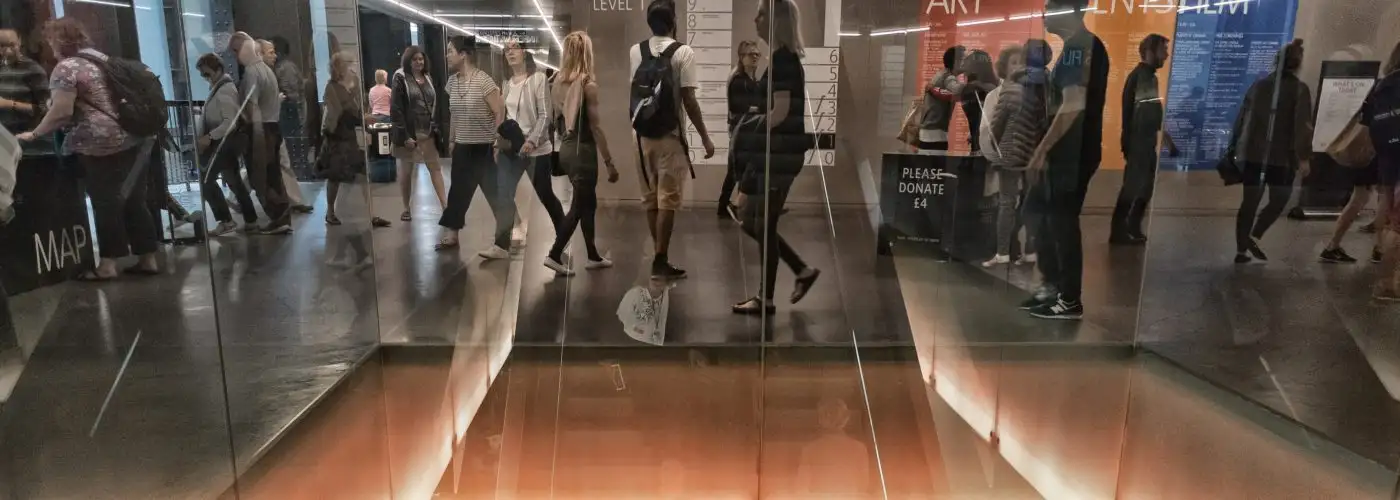Soon, your face could become your boarding pass.
JetBlue and Delta plan to test biometric boarding passes over the coming months. These sci-fi-sounding alternatives to the traditional boarding pass could be the next step in an ongoing transition away from printed passes.
JetBlue is testing the process this month on flights from Boston to Aruba. In a statement, the airline says its biometric boarding passes involve “a quick photo” from custom-designed camera stations that will “instantly” match the image to passport, visa, or immigration photos in the CBP database. If the images match, “the customer will be notified on an integrated screen above the camera when they are cleared to proceed to the jet bridge.”
JetBlue says the new boarding process “will move JetBlue crewmembers from behind the counter to interact with customers and assist throughout the process. JetBlue will issue iPad minis to crewmembers, giving them mobility to monitor and manage the boarding process while interacting with customers.”
Anecdotally, scanning a paper or mobile boarding pass takes about five-to-seven seconds. Will these biometric passes process more quickly? A JetBlue spokesperson told me “the process has been clocked at under 5 seconds” during initial testing. The airline will have more information once the pilot program is completed.
Delta, on the other hand, is experimenting with using fingerprints as boarding passes. Just … not for boarding, yet.
In a statement, the airline says “SkyMiles Members can forego a paper or mobile boarding pass and hard copy ID in favor of using fingerprints as proof of identity at the Delta Sky Club” at D.C.’s Reagan airport. According to Delta, this is phase one of a testing process, and if all goes well, phase two will allow SkyMiles Members to use their fingerprints to check a bag, check in at the Delta Sky Club, and board a flight.
In both cases, the aim is clear and there are benefits to both sides. Assuming these processes function well, travelers can expect a slightly smoother and quicker boarding process. Funneling a hundred or more travelers onto a flying metal tube will never be an efficient process, but refinements can only help. It’s also beneficial to have gate agents freed up from the boarding process to help resolve customer issues and keep the boarding process organized.
But obviously, there are questions. What happens if the camera station incorrectly denies boarding to a traveler? How will airlines manage one line of biometric passes and one line of paper and mobile passes? What happens if the camera station or fingerprint reader freezes up and multiple travelers don’t have alternative boarding passes? As we say in the web publishing business, that’s why we test. Good luck, guinea pigs.
Readers, would you use a biometric boarding pass? Do you think it will speed up or slow down the boarding process?
More from SmarterTravel.com:
We hand-pick everything we recommend and select items through testing and reviews. Some products are sent to us free of charge with no incentive to offer a favorable review. We offer our unbiased opinions and do not accept compensation to review products. All items are in stock and prices are accurate at the time of publication. If you buy something through our links, we may earn a commission.
Related
Top Fares From
Today's Top Travel Deals
Brought to you by ShermansTravel
11-Nt Ireland Tour, Incl. Dublin, Belfast,...
smarTours
 vacation
$3870+
vacation
$3870+
Amsterdam to Copenhagen: Luxe, 18-Night Northern...
Regent Seven Seas Cruises



Ohio: Daily Car Rentals from Cincinnati
85OFF.com






